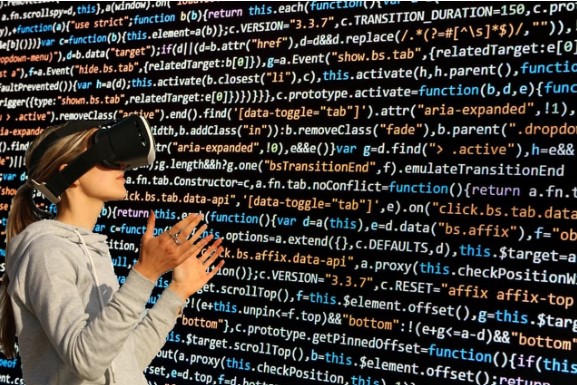You might have heard about Metaverse. Many experts predict that it will revolutionize different industries. The education industry has no exception to this rule. As you might be aware, the Metaverse assures a futuristic virtual world in which users can socialise, interact and can carry out different activities. When the Metaverse is integrated into the education field, it will transform the learning experience. Both students and teachers will get an immersive and engaging learning experience with Metaverse. Let us know how will educational domain benefit from the concept of Metaverse:
Immersive Learning Experiences:
In traditional learning methods, teachers always find it hard to capture and retain the attention of students. But, in Metaverse, they can provide immersive learning experiences to students in captivating and interactive virtual environments. With the help of augmented reality and virtual reality technologies, educational content can be presented in 3D to students. So, students can explore things themselves. They can get into the intricate details of complex scientific concepts. Even, they can stimulate experiments in a safe yet realistic setting. In turn, students will understand the concept taught better and also, they can retain the knowledge they gain for longer. In turn, Metaverse can make learning immersive, enjoyable and effective.
Global Collaborative Learning:
The excellent thing about Metaverse is that it breaks down geographical barriers. In turn, students and educators from different parts of the world can collaborate and connect without any trouble. This international collaboration exposes learners to different perspectives and cultural insights. In turn, students can gain a more inclusive and richer learning experience.
Personalised Learning Opportunities:
One of the considerable benefits of Metaverse usage in the educational field is that it can adapt learning and content pathways to the needs of every student. AI-driven algorithms can evaluate the preferences and performance of every student to deliver personalized educational challenges and content. This personalized approach apart from ensuring that the students get customized content to their unique learning styles helps them progress at their pace. In turn, self-directed learning and an overall boost in academic performance can be achieved.
Real-World Simulations:
In some fields of education like medicine, engineering and aviation, students should get practical education to understand concepts better. But, when it comes to traditional educational settings, practical training has some difficulties. For instance, in medicine, it is hard to operate a patient without an issue. Thankfully with Metaverse, it will be possible to create realist and risk-free simulations by educators. As a result, students can understand hard-to-understand procedures and techniques in virtual atmospheres. As a result, they can gain better confidence on the concepts they learn. The outcome will be better academic performance.
Conclusion:
In short, when the Metaverse and the educational sector get together, the former can revolutionize the latter to a great extent. Apart from the benefits listed above, Metaverse can also help with achieving inclusivity and lifelong learning for students. It will turn the educational journey not only engaging but also dynamic. The virtual world will continue to improve the role it plays in improving different sectors and the educational sector is no exception to this rule.
